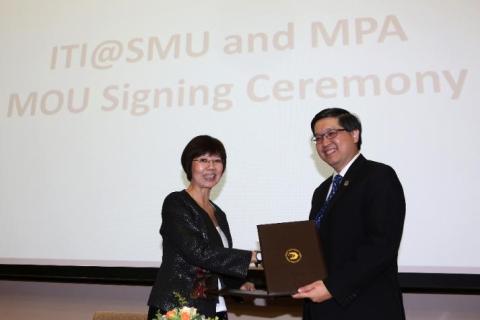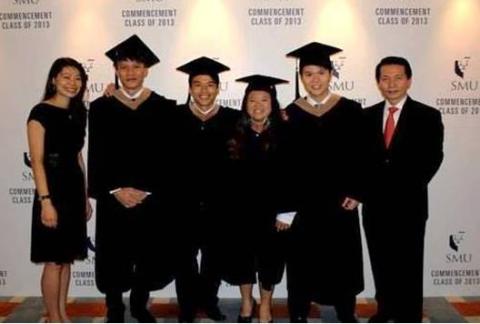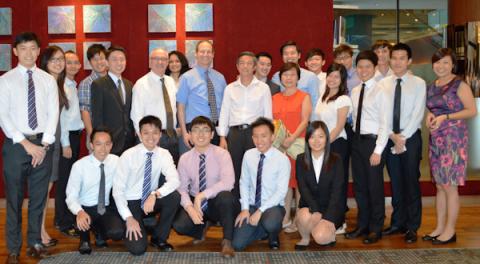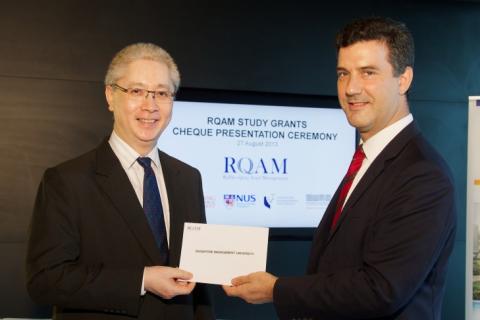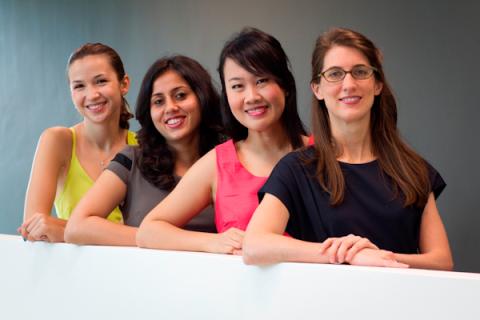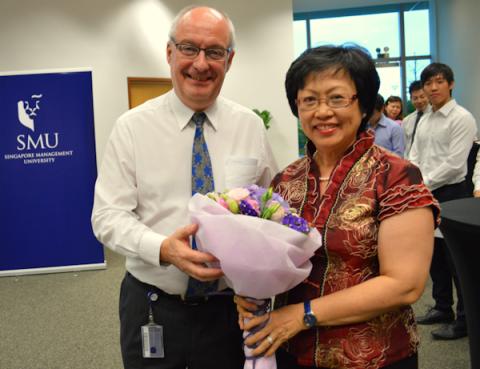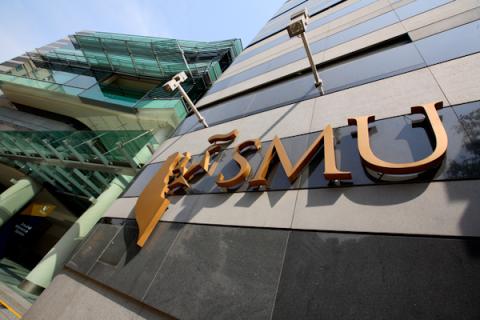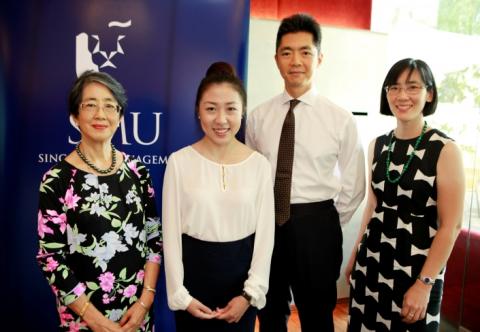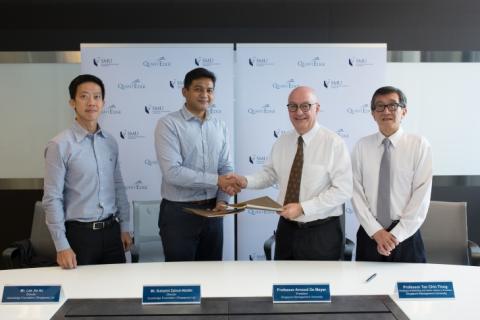Professor Ezra F. Vogel speaks at the Ho Bee Professorship Lecture Series on "The Legacy of Deng Xiaoping"
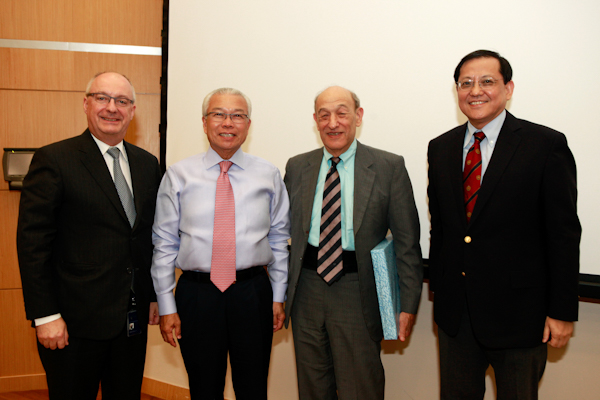
-
n partnership with Business China, Singapore Management University (SMU) organised the “Ho Bee Professorship in Chinese Economy and Business” public lecture on Wednesday, 23 May.
Professor Ezra F. Vogel, an American sinologist and author of Deng Xiaoping and the Transformation of China, took the 450 participants down the memory lane, sharing his perspectives on the legacy of Deng Xiaoping. During the two-hour English lecture, Prof Vogel commented on how Deng’s frequent interaction with the world leaders and strong support for science and technology has led China into a revolutionary new path.
The 81-year-old Professor Emeritus of Harvard University commented that there was no other leader in the 20th century who had improved the lives of so many and had such strong and lasting influence on world history as Deng did. In Prof Vogel’s new book, he also stated 1978 to 1992 as China’s crucial transformational period, describing Deng as the key person in the creation of contemporary China as well as the most important man in modern Chinese history. Thus, development of contemporary China and Deng Xiaoping’s political life are clearly inseparable.
During the lecture, Prof Vogel led the participants through a history lesson, accompanied with photos of Deng with various political leaders. From the year when 16-year-old Deng went to France as a student worker, to 1957 when he followed Mao Zedong to the Soviet Union, and then in 1979 when he first visited the United States after the People’s Republic of China was established. Political leaders whom Deng had met included Japanese Emperor Hirohito, Singapore's Minister Mentor Lee Kuan Yew and US President Ronald Reagan and George Bush SR. Some of the renowned personalities whom Deng had met were business magnates Li Ka-Shing and Henry Fok; Nobel Prize winners Yang Chen-Ning, Lee Yuan-Tseh and Ding Zhao-Chong. Deng then waved goodbye to the political stage in 1992 and died in 1997 in Beijing.
Deng loved meeting people and building relationship with foreign leaders. His advocacy on the reform policies had yielded significant results and improved China’s diplomatic relations with many countries. As the chief architect of China's socialist reforms and modernisation, Deng was sure that the most advanced science and technology as well as the most effective management skills would be the greatest boost for China’s development. In this, he had found the solution to pull China back from the chaos of the Cultural Revolution and to steer it onto its current path.
US President Ronald Reagan once commented on Deng, “He doesn’t seem like a communist but a guy who can work with.” Prof Vogel agreed that it was Deng’s confidence, political judgement, rich experience and interpersonal skills that made the reform a great success. In the two decades after Deng set the country on its new path, it became the second largest economy in the world and for the first time in history, it had become a predominantly urban society.
During the question and answer session, the enthusiastic participants expressed concerns over various critical issues, including the ability of the new leadership in driving China’s future development, growing wealth inequality, anti-corruption policy and environmental protection.
Addressing these concerns, Prof Vogel remarked that Deng had left behind not only a legacy of economic reforms but also a new dawn in politics, enabling China to open her doors to the world as well as rolling out the party leaders’ retirement systems. In conclusion, he added that with unity, the upcoming new Chinese leadership is “still capable of achieving feats”.
The Ho Bee Professorship in Chinese Economy and Business was jointly organised by SMU and Business China, with generous support from Ho Bee Group. The chairperson for this lecture was Professor James T. H. Tang, Dean and Professor of Political Science, School of Social Sciences, SMU.
